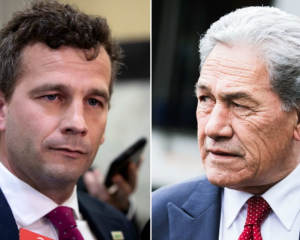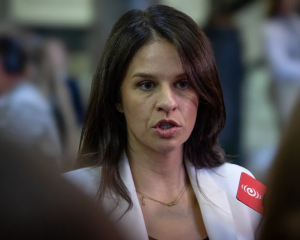New Zealand will further tighten its security ties with Australia with new moves that include greater surveillance in the Pacific, talks on cyber security, and a new strategic defence framework.
New Zealand will also be given a seat on Australia's national counter-terrorism committee, and work more closely on asylum seekers.
And the two countries have signed a memorandum on co-operation in defence research and development, more closely linking Australia's Defence Science and Technology Organisation and New Zealand's Defence Technology Agency.
As well as new technologies, the two agencies will collaborate in research on future naval helicopters and to counter improvised explosive device measures.
Improvised roadside bombs are one of the most lethal threats soldiers face in Afghanistan.
The initiatives were announced yesterday after talks between Prime Ministers John Key and Julia Gillard, and Defence Ministers Jonathan Coleman and Stephen Smith, in discussions built around a joint meeting of the two countries' cabinets in Melbourne.
This follows last year's review of the transtasman defence relationship, and earlier efforts to boost co-ordination and pool resources.
New Zealand defence staff are now based in Brisbane as part of the Anzac ready response plan, centred on close co-operation to pump rapid military aid from both countries into regional crises.
Coleman said that in a more complex and expensive strategic operating environment, New Zealand and Australia had to work more closely together.
"The overall message is that we've got a very good defence relationship and we're looking at ways we can cooperate in the best way possible," Coleman said.
A key development will be efforts to strengthen cooperation on cyber security through a formalised transtasman dialogue, following similar moves by Australia to work closely in cyberspace with the United States.
Gillard said yesterday that the risk of cyber attack was a growing threat.
New Zealand will also move from observer status to full membership of the Australian counter-terrorism committee, the nation's key coordinating body embracing federal and state agencies and departments, defence, foreign affairs and police officials, emergency services and the domestic spy agency, the Australian Security Intelligence Organisation.
And New Zealand will become a full member of the national emergency management committee following the transtasman response to the Pike River mine disaster, the Christchurch earthquake, and fires, floods and cyclones in Australia.
Coleman said the new defence framework followed the conclusions of last year's review, designed to shape future strategic cooperation and set priorities for Anzac operations.
This included closer co-operation on the development and acquisition of military capabilities and more efficient burden-sharing in the region.
"We obviously have common interests in the wider region and we want to make sure we work together in the best possible way....so basically the whole is better than the sum of the parts," Coleman said.
The two countries will also look at linking military purchases in a bid to lower costs.
"I makes sense that procurement is one area we could look at doing jointly," Coleman said.
"At the end of the day you want to make sure your dollars go as far as possible."
- Greg Ansley of the New Zealand Herald











